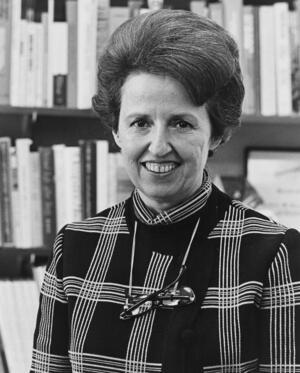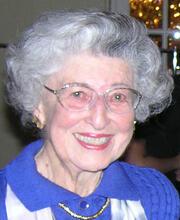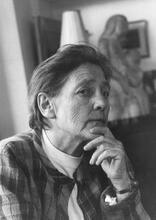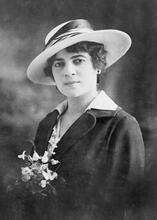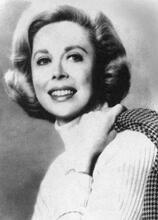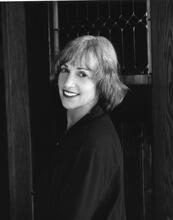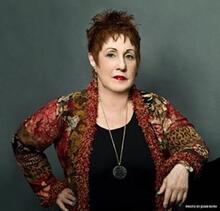Bernice L. Neugarten
Bernice Neugarten began taking college courses as a child and earned an MA in educational psychology from the University of Chicago by twenty-one. She began her full-time academic work in 1951 and from 1952 to 1962 led the Kansas City Studies of Adult Life, a groundbreaking, community-based study of middle-age and aging that examined family, work, leisure, and life satisfaction. Her work exploded many myths about the elderly and emphasized the importance of tailoring services to the needs of individual elderly people. She became the University of Chicago’s first tenured professor of human development in 1960 and wrote eight books and more than 150 articles on her research.
Academic study of adult development and aging—now a well-established subject essential to social practice and policy and to the clinical professions—can be said to derive from the pioneering scholarship and teaching of Bernice L. Neugarten in the decades since 1950. Working at the border of sociology and psychology, Neugarten contested many of the myths of middle and late life, helped to build and maintain unique academic programs, and trained scores of influential scholars in the field she helped to invent.
Family and Education
Born Bernice Levin in 1916, Neugarten grew up in the small town of Norfolk, Nebraska, where she advanced quickly through the public school system, taking college courses even before she entered her teens. She enrolled as an undergraduate at the University of Chicago during the days of Robert M. Hutchins’s reforms that made it possible for students to study for college and then graduate degrees in just a few years.
Thus, she earned her B.A. in English and French literature and M.A. in educational psychology by the time she was twenty-one. Her professional life took form as a result of both preparation and accident; perhaps inevitably, Neugarten made the impact of “off-time experiences” and of the discontinuities and continuities in adult experience major themes in her scholarly work.
Neugarten’s initial career plans were stalled by her youth, she believes, as she appeared too young to school authorities to be a credible high school teacher. She was “rescued,” she says, by the offer of a graduate assistantship at the University of Chicago in the new Committee on Child Development (later Human Development). She earned her Ph.D. in 1943. The next eight years were devoted to family life, raising two children, doing part-time research, and consulting, and working with her husband on local community projects aimed at racial integration.
Career
After she returned to full-time academic work in 1951, Neugarten came to play a critical role in the maturation, so to speak, of human development as a subject at the University of Chicago and elsewhere, even though it was by accident that she came to specialize in adult development and aging after she was unexpectedly called upon to design a course in that subject. In 1960 she was the first person at the University of Chicago to gain tenure in that field (without a joint appointment in another department).
This period was an unusually fruitful one. The famed Kansas City Studies of Adult Life (1952–1962), conducted with foundation and federal support, were carried out under Neugarten’s leadership, jointly with Robert J. Havinghurst and William E. Henry. The project represented the first community-based research to focus on middle age and aging. With a research agenda that was, for its time, uniquely multidisciplinary, the work produced by Neugarten in 1964 and 1968 represents many of the key issues that came to define the field: social role performance, age differences in family, work and leisure patterns, social mobility, age-grading, personality processes, psychological adjustment, and life satisfaction. In Neugarten’s own words, the major contribution of the Kansas City studies was “to demonstrate not only that there is no single direction or pattern of social-psychological aging, but no single pattern of optimal aging” (1988).
Neugarten’s scholarly work helped to launch the careers of many social and behavioral scientists. She notes with pride that half of her students over the years have been women. During a period of institutional tension at the University of Chicago with regard to the matter of gender and academic appointments, Neugarten served as the first chair of the university’s Committee on Women, which, with its research and advocacy, had a considerable impact locally and nationally.
Neugarten was the coauthor or editor of eight books and the author of more than 150 articles. She herself noted that the pattern of her research was to open new topic areas rather than follow a single line of inquiry over an extended period— “to map out some of the landscape of what had earlier been the neglected territory of the second half of life.” She invented terms now widely used—the “young-old,” to identify those in their late years still able to function well, and the “old-old,” those who are frail and need support.
Perhaps her most important contribution, paradoxically enough, was to demonstrate that compared to earlier periods in history, age has declined in significance in distinguishing between middle-aged and older people. Aging is a complex and highly individual process in which there are many possibilities for “success.”
Later Life
In 1975 and 1994, Neugarten was recognized by the American Psychological Association for her achievements in research, teaching, and leadership. Late in her career, she made policy her primary interest. Neugarten served a term on the Federal Council on Aging and was instrumental in planning the 1981 White House Conference on Aging. Always an independent thinker, her support of basing government programs on need rather than entitlement put her at odds with senior citizen interest groups. Neugarten characteristically resisted the conventional reaction: “Perhaps the most constructive ways of adapting to an aging society will emerge by focusing not on age at all but on the more relevant dimensions of human needs, human capacities, and human diversity.”
Bernice Neugarten died in her apartment in the Hyde Park neighborhood of Chicago on Sunday, July 22, 2001.
Selected Works
Age or Need? Public Policies for Older People (1982).
“The Aging Society and My Academic Life.” In Sociological Lives, edited by Matilda While Riley (1988).
“Changing Meanings of Age in the Aging Society,” with Dail A. Neugarten. In Our Aging Society: Paradox and Promise, edited by Alan Pifer and Lydia Bronte (1986).
The Meanings of Age: Selected Papers of Bernice L. Neugarten (1996).
Middle Age and Aging (1968).
Personality in Middle and Late Life (1964).
“Professor Emeritus Neugarten dies at 85.” The University of Chicago Chronicle 21, no. 1 (September 2001).

